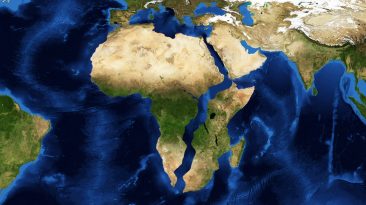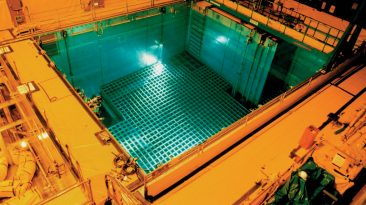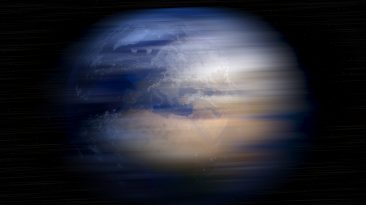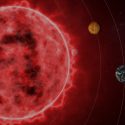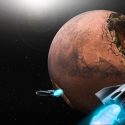What if all the galaxies, stars, planets – everything – stopped moving away from everything else?
Would the Universe as it is just freeze?
Or would it collapse into a single point, just like it was before the Big Bang?
Would that be the end of everything?
Here’s what would happen if the Universe stopped expanding.
Before the 1920s, when Edwin Hubble observed that galaxies moved away from each other, we thought that the Universe was static. Years later, the Hubble Space Telescope showed us that not only is Universe is expanding, but it’s growing at ever-increasing rate.
This came as a total surprise for astrophysicists – they expected that the expansion was actually slowing down due to the force of gravity. To explain the discovery, they theorized that there is a force speeding up the expansion of the Universe. They called it “dark energy”.
What if this hypothesized energy suddenly stopped pulling the Universe apart?
Let’s assume the strength of dark energy diminished over time, but was still enough to counteract the force of gravity. What would that look like?
If that were the case, the Universe would become just like Albert Einstein imagined it 100 years ago, before Hubble’s discovery changed the game (and Einstein’s viewpoint).
It would be static. The Universe would neither be expanding or contracting.
Eventually stars would exhaust all the gas needed for their formation. We’d literally run out of gas. Fewer new stars would be born, and the existing ones would burn out.
The Universe would grow darker, packed with black holes. By that time, the Earth would be long gone – absorbed by a red giant star that used to be our Sun.
At some point, it would reach its eventual temperature minimum – Absolute Zero, or zero K. On the Celsius scale, that is −273.15° (-459.67° F). At that temperature atoms themselves would stop moving. The universe would become absolutely lifeless.
But let’s go back and assume that dark energy became so weak, that it couldn’t counteract the force of gravity anymore.
Once the gravity took over, it would pull everything back. The Universe would start contracting. Galaxies would draw closer together, until they merge into one mega-galaxy.
With the stars melding into each other, space would become hotter than the Sun, and again, packed with black holes – the result of exploding stars.
These black holes would suck up everything around them – planets, stars, entire galaxies… even one another. Eventually they’d form one monstrous black hole that would pull the entire Universe into a single point – hot, small, and extremely dense.
The Universe would end in a Big Crunch – reverting back into what it looked like at the start. And, who knows? The newly formed singularity might explode in another Big Bang, creating a brand new universe – with new stars, new planets, new life forms…
We don’t know exactly how our Universe will end. We don’t even understand what that dark energy pulling it apart is.
That’s why there’s not just one theory explaining ultimate fate of the universe.
There are several good ones. Any of them might be correct, but they could be wrong all together.
Subscribe to What-If on Youtube or follow the show on Facebook Watch.
[expand title=”Sources”]- How We Know The Universe Is Expanding
- Endless Void or Big Crunch: How Will the Universe End?
- After Big Bang Came Moment of Pure Chaos, Study Finds
- What Is Dark Energy?
- Current observations with a decaying cosmological constant allow for chaotic cyclic cosmology
- Astronomical bounds on a future Big Freeze singularity














